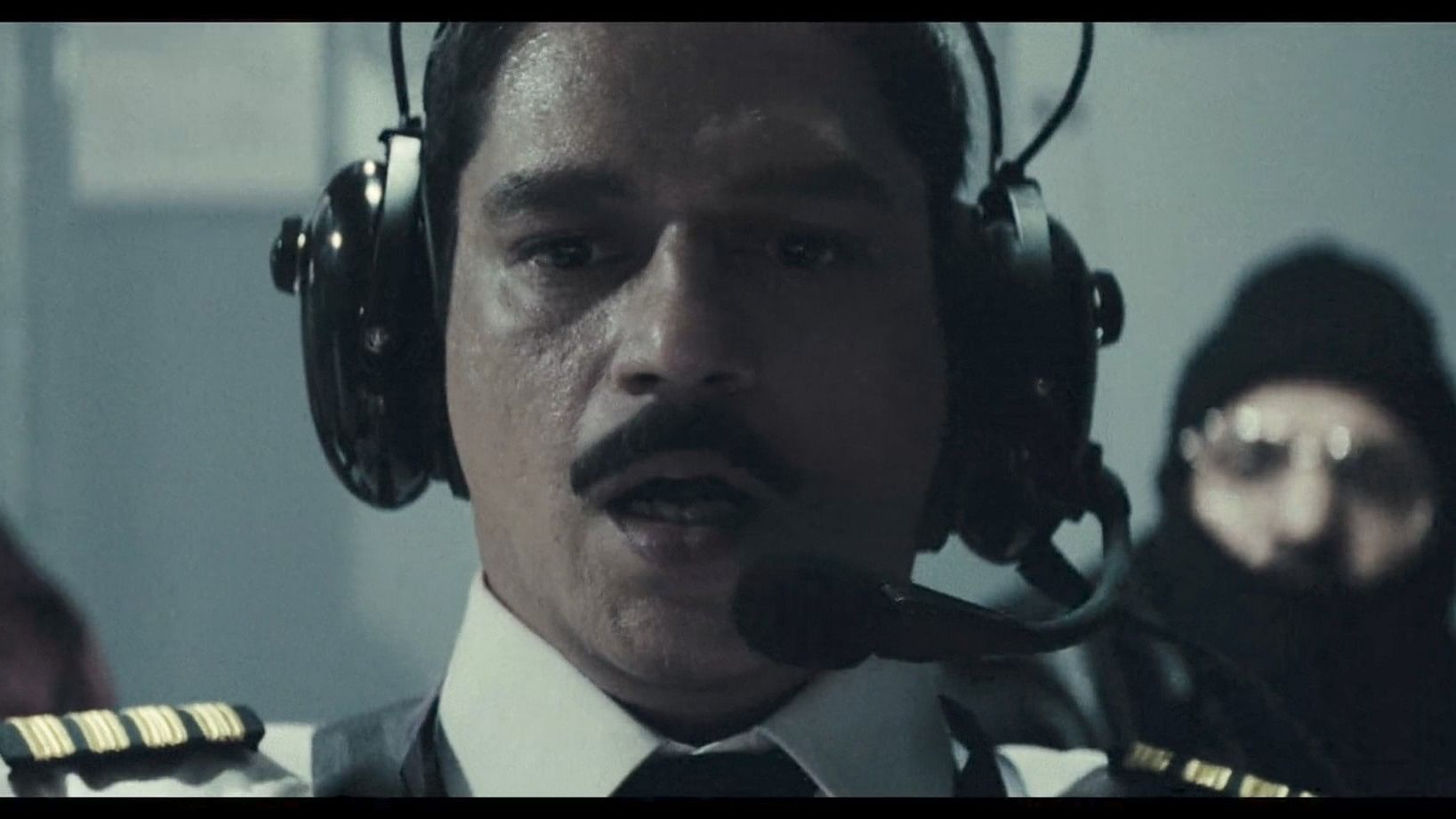
Vijay Varma in a still form the 'IC 814: The Kandahar Hijack', which is being streamed on Netflix.
Credit: X/@paarth
In December 1999, when the passengers on the hijacked IC 814 were brought back to India, Home Minister L K Advani, the man who put the Bharatiya Janata Party (BJP) on the political map with the Ram temple agitation, held a press conference. As a young reporter, I had covered the jam-packed event where the national and international media were told the aliases of the hijackers that they used among themselves. These were: Chief, Doctor, Burger, Bhola, and Shankar.
Now an OTT series about the incident has been an occasion for the information and broadcasting ministry to summon Netflix to explain why two hijackers are using names deemed to be Hindu (Bhola and Shankar) — never mind that Advani himself put those names in the public domain, based on intelligence dossiers he was given at the time.
The BJP ecosystem has detected a sinister plot to mislead us the public into believing that Hindus hijacked the aircraft and took it to Taliban-controlled Afghanistan! The head of BJP’s social media outreach has said so on X and egged on by trolls, the I&B ministry summoned Netflix where the series is being streamed. As this lethal cycle of silliness and bullying got a life of its own, on September 3, news reports suggested that the real names would be mentioned at the beginning of each episode, and that Netflix has agreed to review the content and guarantee that ‘all future content on their platform will be sensitive to the nation’s sentiment’.
Would that be the nation’s sentiment or that of some trolls?
It's a high farce and another instance of the BJP trying to whitewash its history (never mind erasing names of Mughal emperors) and interfere in the freedom of speech and expression. The real problem with the Kandahar hijack is that the BJP, then led by Atal Bihari Vajpayee and Advani, was helming a coalition regime that was repeatedly found napping on the intelligence front. From Kargil to Kandahar, it was a debacle. In the first instance, the narrative could be turned around because of the exceptional war fought by the Indian Army against Pakistan soldiers who had occupied the high peaks that the Indians reclaimed after a brave and valiant fight that claimed many lives.
What also went well from India’s point of view post-Kargil was the release of transcripts of a conversation between Pakistan’s General Parvez Musharraf (while on a visit to China) with Lt Gen Aziz Khan, then chief of general staff in Pakistan. The conversation is reproduced in Jaswant Singh’s memoir, A Call to Honour published in 2006. Singh held at different times during the Vajpayee years charges of the ministries of finance, external affairs, and defence. Pakistan had to drop the pretence that it was Kashmiri Mujahedeen who entered Kargil; it was regulars of the Pakistan Army, dressed as shepherds and/or local civilians.
No glory could be claimed from the Kandahar hijack, and the current series does depict rather well the story that reporters of that time were familiar with, of the passing of the buck that went on between India’s premier intelligence gathering agencies, the R&AW and the IB. Eventually, it would be the same Jaswant Singh who would travel to Kandahar, with three high-value terrorists who were released by India in exchange for the passengers of the hijacked aircraft.
Singh would later say that “it was near impossible to negotiate at Kandahar”. He would also write in his book, “for 3 terrorists, 161 men, women and children. Is it right? Wrong? A compromise? Between two moral rights, saving the lives of the innocents and a fight against terrorism, falls this hollow, undetermined space of the undetermined”. Whatever happened in those years, whatever right or wrongs were committed, individuals like Singh and Vajpayee, pondered over their actions and consequences.
Jaswant Singh was, therefore, a great witness of the Vajpayee era, and a record-keeper of those times, from Kargil to Kandahar to Vajpayee’s Lahore bus journey to the attack on Parliament, and more.
I last met Singh in 2012 when he called to ask me to moderate the discussion at the launch of his book, The Audacity of Opinion in Delhi. He had a fall in 2014, and remained mostly dysfunctional till his death in 2020. But I doubt he would ever have been in sync with a party that responds to the alleged ‘insult to emotions’ as claimed by Right-wing trolls, over the facts around the hijacking of IC 814, recorded at the time and in the public domain.
For the current BJP ecosystem on social media, it’s entirely plausible that a story that involves Hindus and Muslims, India and Pakistan and Afghanistan, cannot be told honestly, without some warped lens.
(Saba Naqvi is a journalist and author.)
Disclaimer: The views expressed above are the author's own. They do not necessarily reflect the views of DH.